Deconstructing romance in ‘Before Sunrise's’ revolutionary take on love
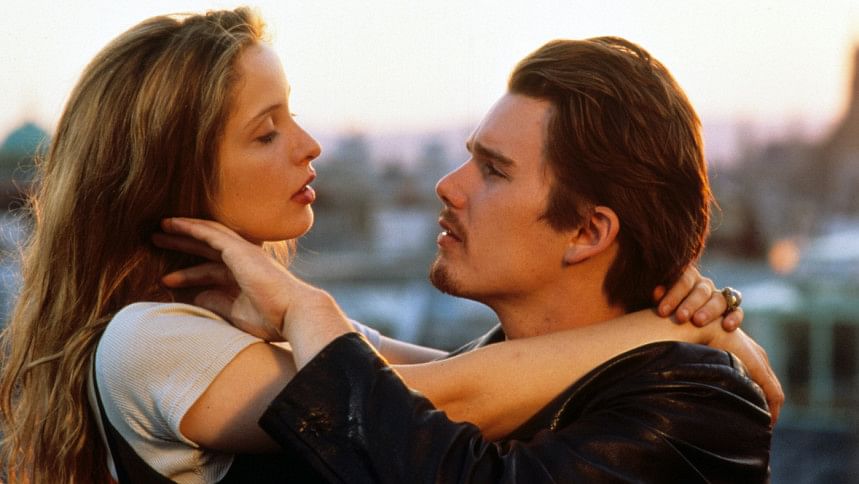
In cinema, Love is often depicted as a grand, sweeping force that transforms lives and provides the pinnacle of human experience. However, Richard Linklater's "Before" trilogy, particularly the first installment, "Before Sunrise", challenges these conventional notions of romance and love. Released over a quarter of a century ago, the film takes a unique approach in steering away from cinematic tropes and embracing a more authentic portrayal of love.

In celebration of the 29th anniversary of Richard Linklater's "Before Sunrise", this article is not just a commemoration of the film but a reflection on its enduring impact on our collective understanding of love. Released in 1995, this cinematic gem has not only stood the test of time but has also become a beacon for those yearning to experience love in its purest form.
The film's narrative unfolds like a dream – a dream that many of us have perhaps harboured at some point in our lives. Jesse (Ethan Hawke) and Céline (Julie Delpy) meet by chance on a train, and what transpires over the course of a single night in Vienna is an excruciating exploration of love, connection, and the uncharted territories of the human heart.
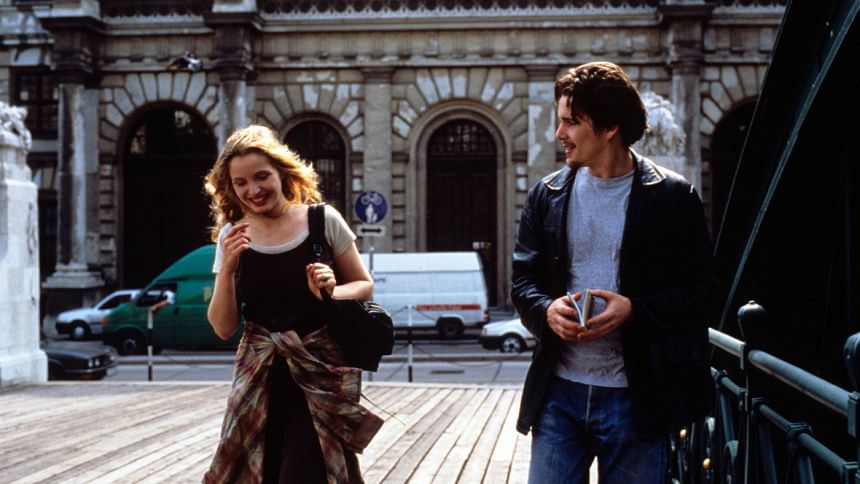
To depart from traditional romantic narratives, Linklater emphasises the authenticity of the connection between Jesse and Céline. The film showcased an intimate and unguarded conversation between two strangers who embark on a journey of emotional discovery. It masterfully captures the nuances of human connection, portraying love not as an idealised fantasy but as a raw and genuine experience. The film resists the typical trajectory of quick romantic escalation and instead focuses on the significance of the first kiss and the gradual development of a genuine bond.
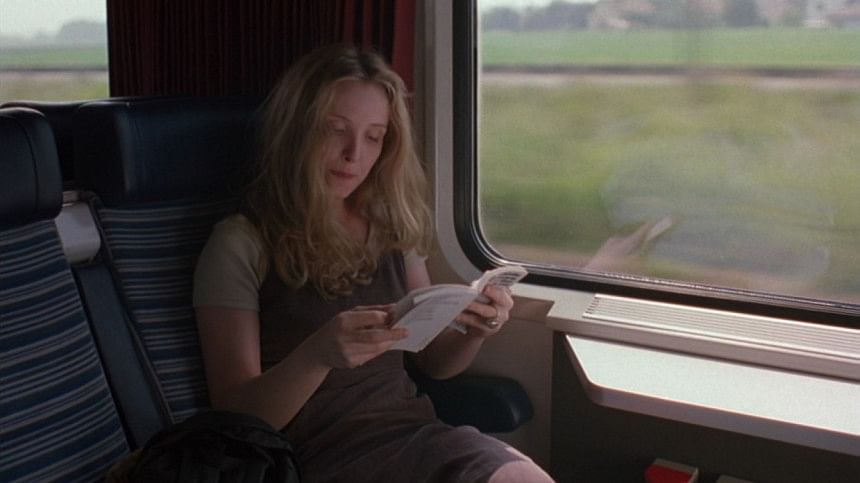
The chance encounter between Jesse and Céline sparks a magical night where they open their hearts and souls to each other. It fuels the fantasy of meeting a stranger on a train and, in the span of a few hours, forging a connection that transcends time and space. "Before Sunrise" has become a touchstone for those who believe in the transformative power of serendipitous encounters and the possibility of finding true love in the most unexpected places.
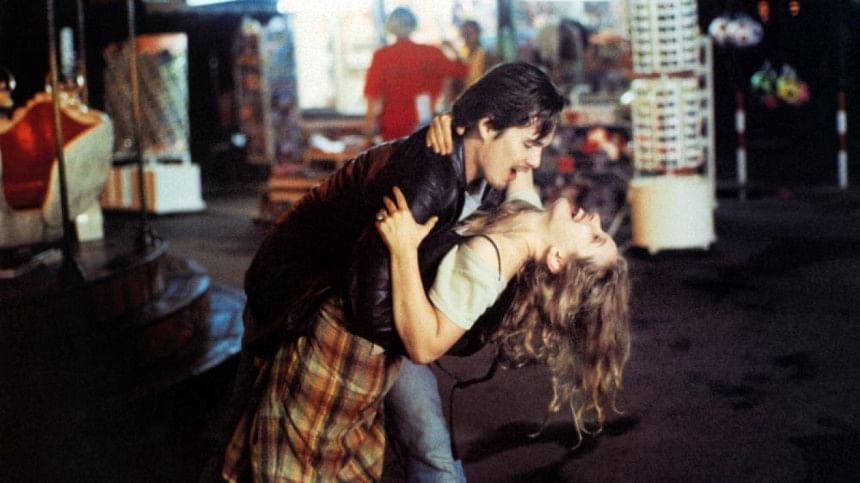
The film's portrayal of love deviates from the norm. It is not just in the romantic exchanges between its protagonists; love extends to the way of its crafting in the narrative. The pacing is deliberate, allowing the audience to savour every moment of the seemingly fleeting encounter. This deliberate unhurried approach mirrors the organic development of a genuine connection, eschewing the need for contrived plot twists and manufactured drama.
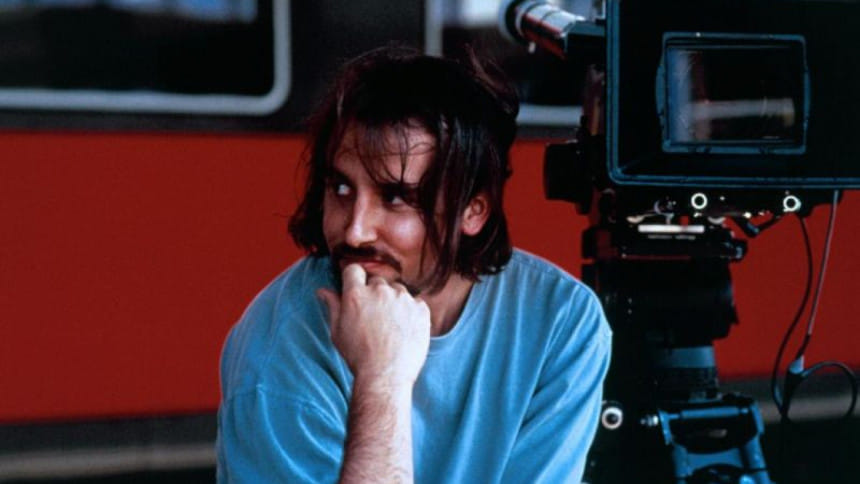
The cinematic craftsmanship of "Before Sunrise" is a testament to Richard Linklater's directorial prowess. The choice of Vienna as the backdrop, with its picturesque streets and historic charm, adds an enchanting quality to the film. Cinematographer Lee Daniel's work captures the subtle nuances of the characters' expressions, allowing the audience to witness the unspoken emotions that unfold throughout their encounter.

Linklater deliberately incorporates imperfections in "Before Sunrise", embracing shaky camera movements, imperfect edits, and occasional focus issues. These imperfections mirror the disjointed nature of real-life memories, further accentuating the film's authentic and living quality. By avoiding the polished aesthetics often associated with cinema, Linklater enhances the audience's connection to the characters and their journey, creating an immersive experience that stands the test of time.
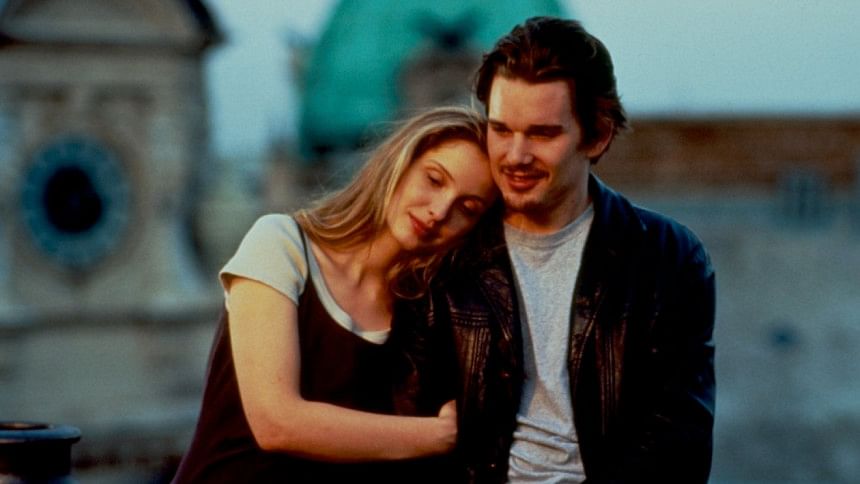
The life-like performances of Ethan Hawke and Julie Delpy syncronises to become the beating heart of "Before Sunrise". Their chemistry is palpable, making the dialogues feel like genuine conversations beyond scripted lines. Hawke and Delpy's respective portrayals of Jesse and Céline are authentic enough that they transcend the screen, resonating with viewers on a personal level.
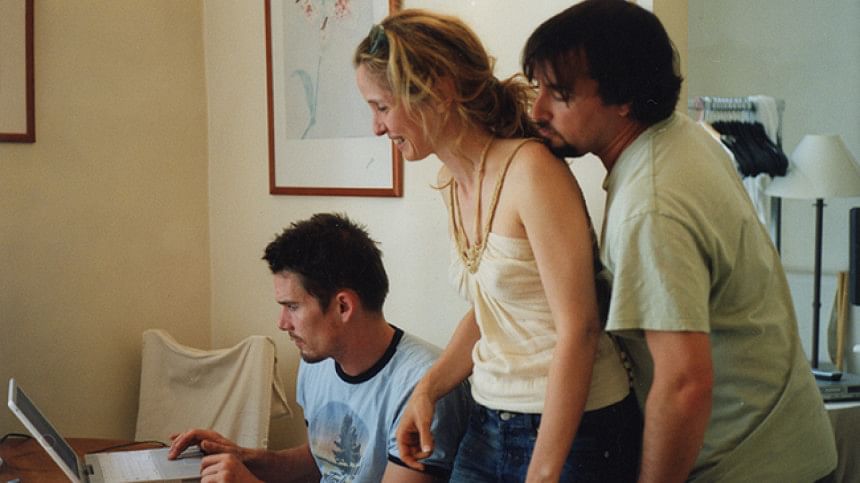
As actors, Ethan Hawke and Julie Delpy's reaction to the dialogue-heavy script was not just a matter of delivering lines but a collaborative process of bringing their true selves into the characters. Linklater constructs a balanced collaboration, where each participant, including the director and actors, contributes authentically to the film's essence. The film's sequences were shot in chronological order, capturing the organic progression of the characters' connections with each other. The result is a "beautiful mesh" of creativity and expression.
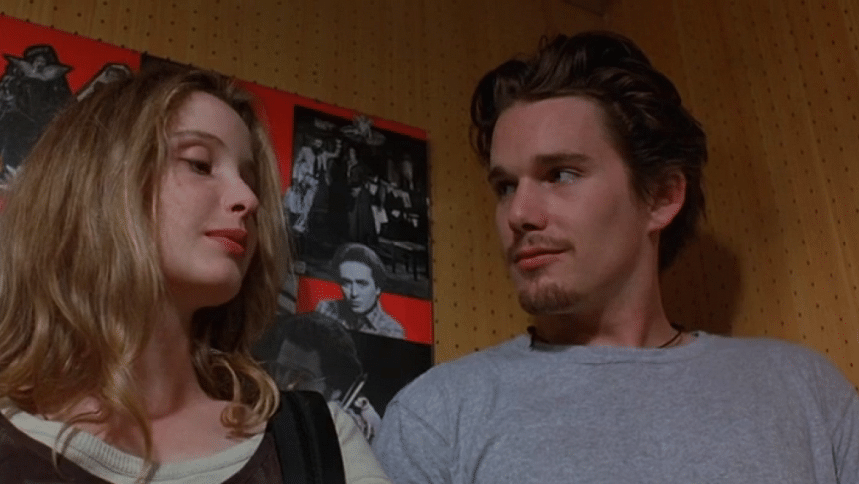
One exceptional scene in the film, where Jesse and Céline listen to Kath Bloom's "Come Here" in a listening booth, stands out. Linklater reveals that the actors had not heard the song before the shoot, creating a genuine and intimate moment of forced intimacy.
The soundtrack, featuring ethereal tracks by artistes like Kathy McCarty, Lou Christie, and Kath Bloom amongst others complements the film's mood, creating a poetic rhythm that lingers in the hearts of its audience. The music becomes a silent companion to Jesse and Céline's nocturnal journey, heightening the emotional nuances of their fleeting encounter.
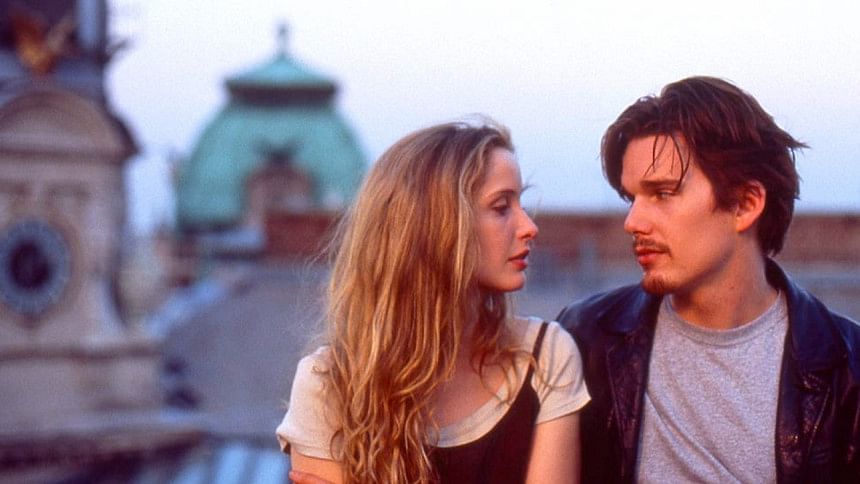
"Before Sunrise" doesn't offer a traditional happily-ever-after ending. Instead, it leaves the fate of Jesse and Céline's relationship open-ended, inviting viewers to ponder the possibilities. This ambiguity is both refreshing and thought-provoking, allowing the film to resonate with a diverse audience who can project their interpretations onto the narrative canvas.
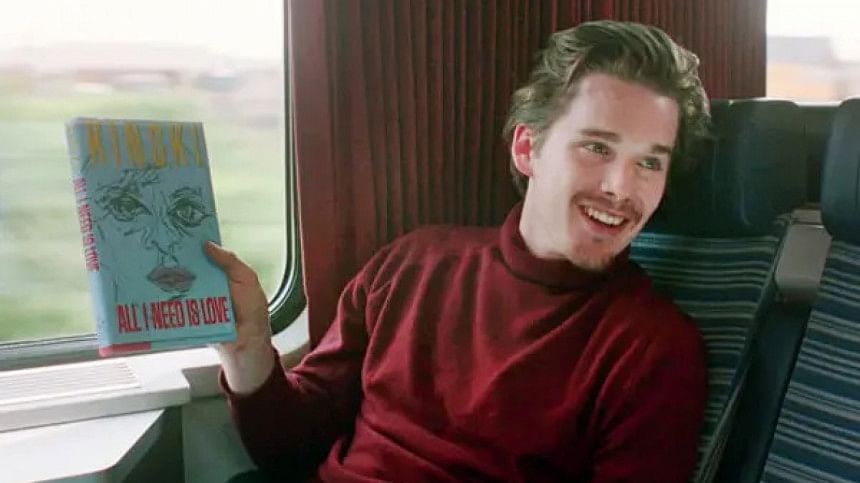
Ethan Hawke aptly describes "Before Sunrise" as "what might be," capturing the essence of the characters' youthful optimism. The film beautifully explores the process of self-discovery and vulnerability as Jesse and Celine navigate their brief encounter. The heart-rending acknowledgment of the momentary nature of their connection adds a layer of realism to the romantic narrative, paving the way for its sequel, "Before Sunset".
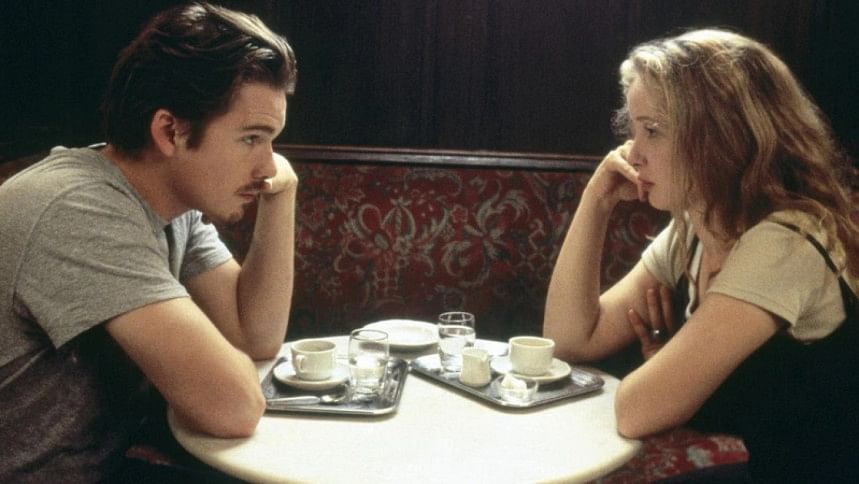
While "Before Sunrise" deviates from the traditional romantic film formula, it still operates within the framework of cinema. The film embraces the fantasy inherent in romantic storytelling, with Vienna serving as a dreamscape that encourages the characters to fall in love. The inevitable return to reality adds a bittersweet touch to the narrative, reminiscent of timeless tales of love and loss.
"Before Sunrise's" revolutionary take on love challenges the established standards of romantic cinema. The prioritisation of dialogue over plot, embracing of imperfections, and the grounding of its characters in authenticity thus create a unique and timeless exploration of love. Richard Linklater's masterful direction invites audiences to witness the poetry found in day-to-day life alongside the extraordinary in the ordinary. "Before Sunrise" stands as a testament to the enduring power of love when presented with honesty and vulnerability, making it a cinematic gem that transcends the limitations of its genre.

 For all latest news, follow The Daily Star's Google News channel.
For all latest news, follow The Daily Star's Google News channel. 







Comments